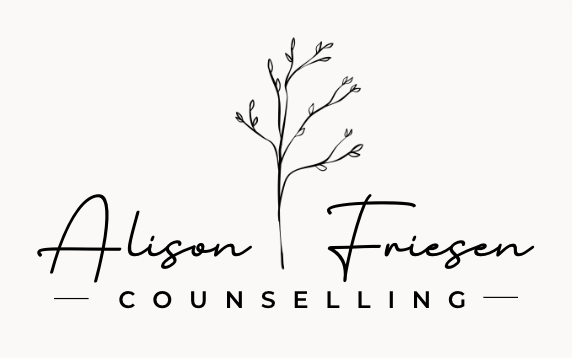To Pause: Benefits of Mindfulness for Anxiety and Depression
Pause: to stop temporarily, to linger for a time Merriam Webster Dictionary
I remember the 80’s and 90’s. You know, the days with no streaming services, no On Demand, no PVR, not even an interactive tv guide. There was no option to pause the show (unless you pre-recorded the show on a blank VHS using your high-tech VCR). When watching a show, you carefully timed bathroom breaks, laundry swaps, and oven timers to the commercial breaks and then made the mad dash back to the couch in under two minutes, preferably before your loved one shouts “HURRY. IT’S ONNNNN!!!”
As exhilarating as this was, I'm grateful for the invention of the pause button. It allows us to take normal bathroom breaks without missing anything important and to notice things closely, like if the referee called that ‘out’ correctly or to pause the hallmark movie when we think we recognize the house or coffee shop.
My guess is I’m not alone, and that you also love the pause button on the remote. However, pausing in real life is not as convenient or easy as temporarily stopping a tv show. And yet, taking pause holds so many benefits for reducing mental health symptoms of anxiety and depression and increasing wellbeing.
“Mindfulness means paying attention in a particular way, on purpose, in the present moment, and non-judgementally” - Jon Kabat Zinn
Mindfulness acts as a pause button for our often overwhelmed nervous systems and draws awareness to what’s happening within us and around us. Where we take a moment to pay attention without judgement in the present moment, just one thing at a time (us humans are really good at multi tasking and placing meaning or judgements on things quickly). Practicing the pause lets us become curiously and compassionately aware of the right now. Not what happened in the last movie frame, or what you think is going to happen next. Just noticing this very moment. There is probably more to take notice of then you first realize.
Benefits of Mindfulness (just a few!)
increased awareness of specific triggers or stressors ( some anxious thoughts or reactions can feel like they ‘come out of nowhere’)
reduces emotional vulnerability and reactivity by increasing tolerance to discomfort or pain
strengthens ability to calm anxious or stressed nervous systems when needed (i.e. fight, flight, freeze, fawn responses)
trains our minds to notice what our bodies may be communicating to us (both the pleasant and uncomfortable)
helps draw awareness to incongruences or negative thinking patterns or strong emotions that may be keeping us ‘stuck’ or be unhelpful to us
strengthens ability to notice pleasant and wanted emotions and thoughts (depression and anxiety are really good at drowning out, discounting, or distracting us from noticing pleasant moments)
Practice Pausing
So, next time you watch a tv show, a movie, or a youtube clip, I challenge you to use the pause button. Both the literal remote pause button and the mindfulness pause button.
Take a minute to strengthen your mind’s ability to pay attention on purpose. Pause the show, and notice what you externally see (colours, shapes, body language, background objects) and what you internally notice (like your own emotions, body sensations, thoughts). Notice these without labeling them as ‘good’ or ‘bad’. Just noticing.
And then practice taking pause once a day, even if it’s just for a minute or two! Where your world feels like it temporally stops, and you curiously and compassionately notice what the environment and your body is showing you before continuing on.
Because running around life worried and frantic that you won’t make it back in time before the commercial ends is stressful and overwhelming. The pause button was a wonderful invention for us.
If you’re curious how mindfulness can help reduce your anxiety, depression, or creating a more manageable and fulfilling life, contact me to schedule a free 15 minute consultation to see if we are a good fit.

